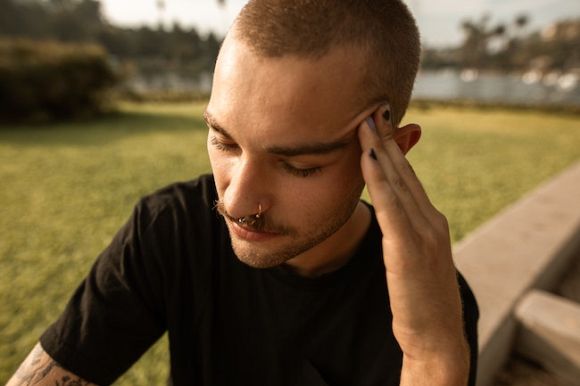Today, clinicians are navigating mental health systems that are deeply broken — systems that too often fall short of offering respect, dignity, or true healing to those reaching out for help.
For example, instead of understanding the causes of mental distress within broader societal and systemic contexts, these systems frequently locate the "problem" within the individual, reinforcing stigmas that only deepen isolation and suffering.
This current crisis didn't emerge overnight. It's the result of long-standing social and political shortcomings that we've all, knowingly or unknowingly, been part of.
Take the noble idea of “community care,” which inspired the closure of mental institutions in the 1980s. Back then, we believed this would usher in a better, more compassionate system. Yet, as the doors closed on these institutions, promised community support and resources largely failed to materialise.
Today, the shocking reality is that prisons, rather than healthcare facilities, have become the largest providers of mental health care in Australia, with approximately 18,000 inmates being treated – inadequately – for mental health issues.
In these environments, like much of the mental health sector, power-based medical approaches are prevalent, offering colonising-style treatments that typically perpetuate stigma rather than heal.
The dominant "biomedical" model, with its narrow tolerance for the broad spectrum of human experience, insists that distress – whether grief, fear, or sadness – requires medication, often after only a short period. This framework relies on the Diagnostic and Statistical Manual of Mental Orders (DSM), a tool that, while meant to facilitate clinical communication, too often assigns labels that can increase shame and carry a lifetime burden.
Meanwhile, leaders have become much more influenced or corrupted by those with power or money. Big Pharma is making record profits, via significant ties to policy-makers, regulators, prescribers, influencers and the authors of the DSM itself.
An obvious symptom of this is that we are now diagnosing and medicating record numbers of primary school children with supposed “ADHD" (Attention-deficit/hyperactivity disorder), while conveniently ignoring how screen addiction shortens concentration span and causes emotional meltdowns when screens are taken away from kids.
How did we get here? In part, by failing to challenge these connections and by continuing to support myths like the "chemical imbalance" theory that lack substantial scientific backing.
As health professionals, we must ask ourselves why this silence prevails here in Australia when in other parts of the world, particularly in the UK and parts of Europe, there is robust protest and activism around these issues.
Health has historically been a field rooted in the science of caring. In the 1980s, theorists like Dr Patricia Benner and medical researcher Judith Wrubel described caring as the heart of human expertise, healing and recovery.
Yet today, caring is almost a revolutionary act — devalued, sneered at, often relegated to the background in systems that increasingly emphasise standardised “one-size-fits-all” treatments, with little consideration for the complex needs of the people we serve, or the context in which both health and “mental health” issues arise.
The relational and therapeutic role of clinicians – integral to healing – is now diminished in many places to “medicate, monitor and manage” and quick turnover is prized.
As humans who thrive on connection, we, along with our patients, suffer under this approach. Many compassionate clinicians feel the weight of this system daily, often reporting experiences of burnout, bullying and moral injury, which is leading many to leave the field entirely.
Yet, there is hope. And there are solutions. The Power Threat Meaning Framework by Dr Lucy Johnstone and Professor Mary Boyle, for example, points toward new ways of thinking.
This framework reminds us of the core needs we all share: to feel safe and valued, to belong and be treated with fairness, and to have our physical, emotional and social needs met. If we begin to place these needs at the heart of our work, we have a chance to redefine the system.
As clinicians, we’re at a crossroads. Are we ready to advocate more loudly for our clients and ourselves, for a system that genuinely cares? Are we willing to demand structural changes that enable true healing, through addressing poverty, injustice and domestic violence?
Are we ready to share power with our clients while challenging entrenched “power-over” patterns that hinder progress? Are we willing to leave systems that aren’t working or create new ones, as Adelaide mental health nurse and psychotherapist Matt Ball’s Humane Clinic has done?
In a world where caring is hard, unpopular – even dangerous – we stand on the edge of a choice.
Will we rise, voices unwavering, reclaiming compassion’s true power, acting as if care is a force too fierce to be silenced?
Or will we stand by, quietly watching as care withers, taking with it the hope, the love and the purpose that first called us to heal?
Claire Hudson-McAuley is a Gestalt and somatic psychotherapist, RN, credentialed mental health nurse, AOD counsellor and clinical family therapist. She is currently Chair of Psychotherapy at the Australian College of Mental Health Nurses and CEO of The Growing Heart.
Related Articles
- Serious reform needed to address growing Australian mental health crisis
- BOOK REVIEW: Flying with Paper Wings
- Victoria's mental health services in dire need of reform
- Overcoming mental health challenges with self-compassion
- Incarceration even more cruel to the neurodivergent
 This work is licensed under a Creative Commons Attribution-NonCommercial-NoDerivs 3.0 Australia License
This work is licensed under a Creative Commons Attribution-NonCommercial-NoDerivs 3.0 Australia License
Support independent journalism Subscribe to IA.












